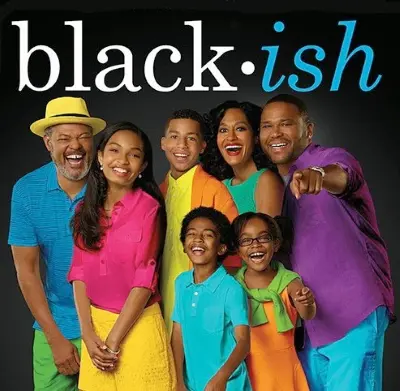Hulu's release of Black-ish's "Please, Baby, Please" episode not only validates Kenya Barris, but also ABC
-

"Given the nebulous nature of the whispering about 'Please, Baby, Please,' it probably isn't surprising that the actual episode is less a landmark piece of television and more a perfectly so-so and serviceable illustration of the Streisand Effect, by which attempt to censor something only results in generating more publicity around the thing," Daniel Fienberg says of the political episode that ABC shelved in February 2018, which was released on Hulu Monday at creator Barris' request. "After watching the 22-minute episode, I find two things immediately clear: First, there was absolutely no reason for ABC to raise a stink about the episode much less not to air it," adds Fienberg. "And second, that doesn't mean that (then-ABC Entertainment president Channing) Dungey's assessment of the episode's quality was in any way incorrect. 'Please, Baby, Please' is not a very good episode of Black-ish, nor is it a horrible episode. It feels like exactly what it is, namely the product of a smart and talented writer being frustrated about the state of the world, without knowing exactly what to say on the subject, or how to say it (but still arriving at a point of uncertain optimism that's not without resonance). Maybe viewers turn to shows like Black-ish to help process chaos. Barris has certainly succeeded in offering a prism through which to engage with disheartening bedlam in the past; maybe in this episode, he just wanted to capture the enduring necessity of simple hopefulness amid societal unease...Unlike Very Special Episodes like 'Hope' and 'Juneteenth,' Please, Baby, Please' makes little effort to utilize humor. There are punchlines about how Clippers fans understand oppression and about how Pops used to slip whiskey into Dre's milk when he wouldn't sleep, but generally it's a straightforward, fairly serious-minded bottle episode dedicated mostly to news footage and some tremendous needle-drops starting with 'Change Is Gonna Come.' If 'Hope' distilled Barris' quandary explaining police violence to older children, this episode is intentionally simple and reductive, leading to a conclusive statement — 'Nobody knows exactly what the future will bring, but what we do know is there are more of us who help than those of us who hurt' — that I'm not sure Barris or Dre even believe."
ALSO:
- ABC pulling the Black-ish episode gave it more power: "As an episode of television, 'Please, Baby, Please' is a perfectly fine, if cluttered, attempt to contextualize a particularly fraught moment in our country’s history," says Caroline Framke. "But as a moment in recent TV history, 'Please, Baby, Please' is absolutely fascinating, sitting at a unique intersection of creative control, political upheaval, and the entertainment industry’s continuing inability to read the room. If ABC wanted to avoid a lasting controversy, it probably could’ve just let the episode air and waited out whatever noise ensued until it became the more palatable murmur it was chasing in the first place."
- “Please, Baby, Please” offers a wide sweep over the anger, racism and fear that underpinned the rise of Donald Trump: "Black-ish masterfully deconstructs something that most network comedies wouldn’t dare go near: the idea that Trump, the rise of white nationalist movements and the deep divisions among many Americans are a form of backlash — against the fact that a Black man won the presidency for two terms — led by enraged citizens whose political zeal is in fact an attempt to turn back the clock," says Lorraine Ali. "Another potential worry for ABC and its corporate parent, Disney (which also owns Hulu), may have been grandpa Earl 'Pops' Johnson’s (Laurence Fishburne) spot-on commentary about why Black pride is positive and white pride is dangerous when contrasted with America’s troubled racial history."
- Watching "Please, Baby Please" in 2020, it's hard to see how the points raised in the episode could ruffle the feathers of ABC executives so much that they'd shelve the episode: "But if the societal changes during Trump's first year in office caused Dre and his family anxiety, it's hard to imagine how he'd explain impeachment hearings, COVID-19, and the current tense social climate to baby Devante now," says Megan Vick. "The public landscape has shifted so much, it's nearly impossible to get back into a 2018 mindset when kneeling at a football game seemed truly sensational. The most controversial part of the episode in this jaded 2020 light is a slight dig at Ellen DeGeneres getting the Medal of Freedom, which only raises eyebrows due to the talk show host's most recent public debacle."
TOPICS: Black-ish, ABC, Hulu, Kenya Barris, Trump Presidency
More Black-ish on Primetimer:- Can Grown-ish Season 5 Solve TV's College Problem?
- 2022 Emmy Preview: Best Actor in a Comedy Promises to Be a Battle of the Titans
- Black-ish helped rewrite how TV comedies talked about race, culture and families of color
- TV Today: Black-ish Says Goodbye After 8 Seasons — With an Assist From Simone Biles
